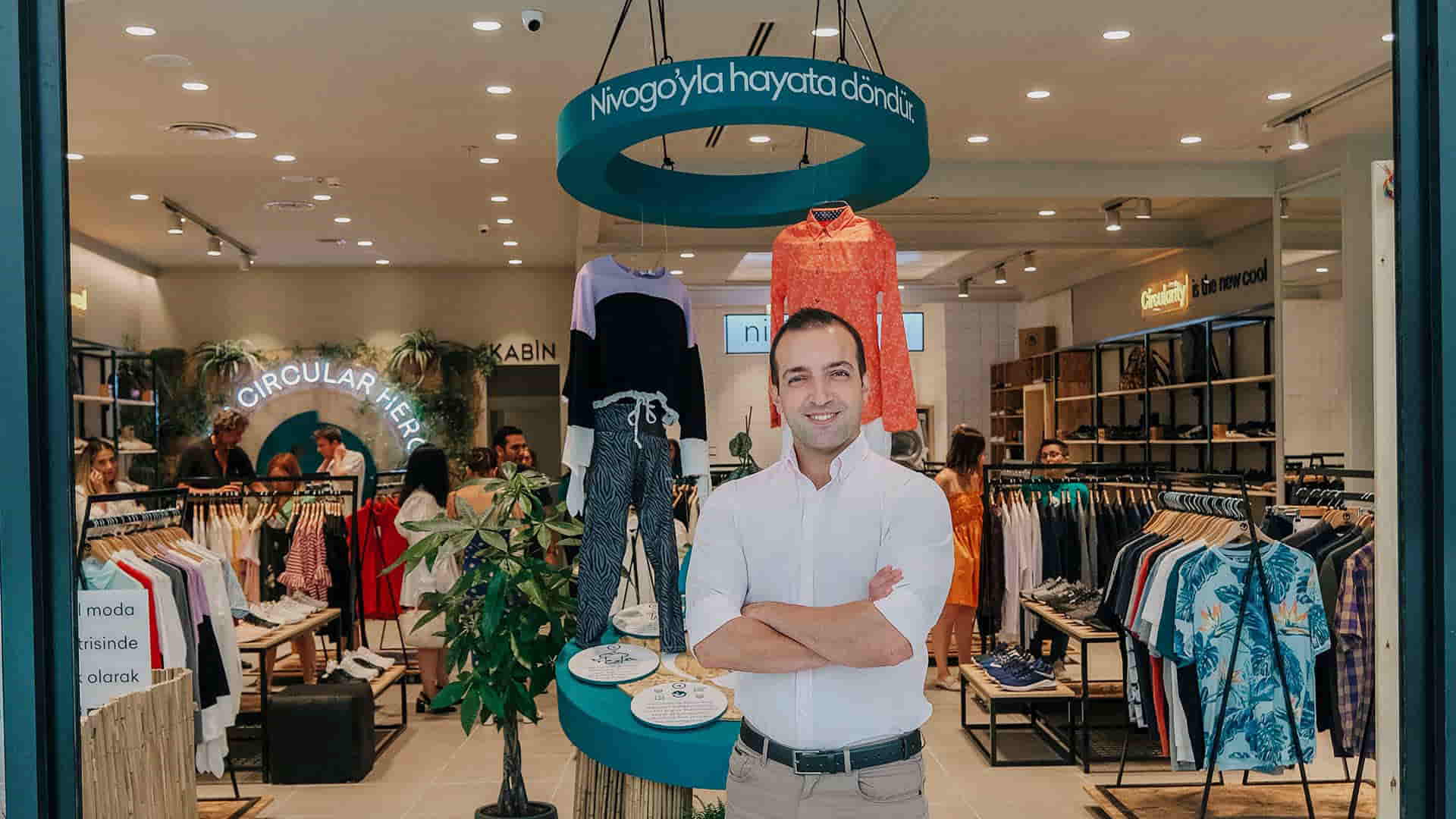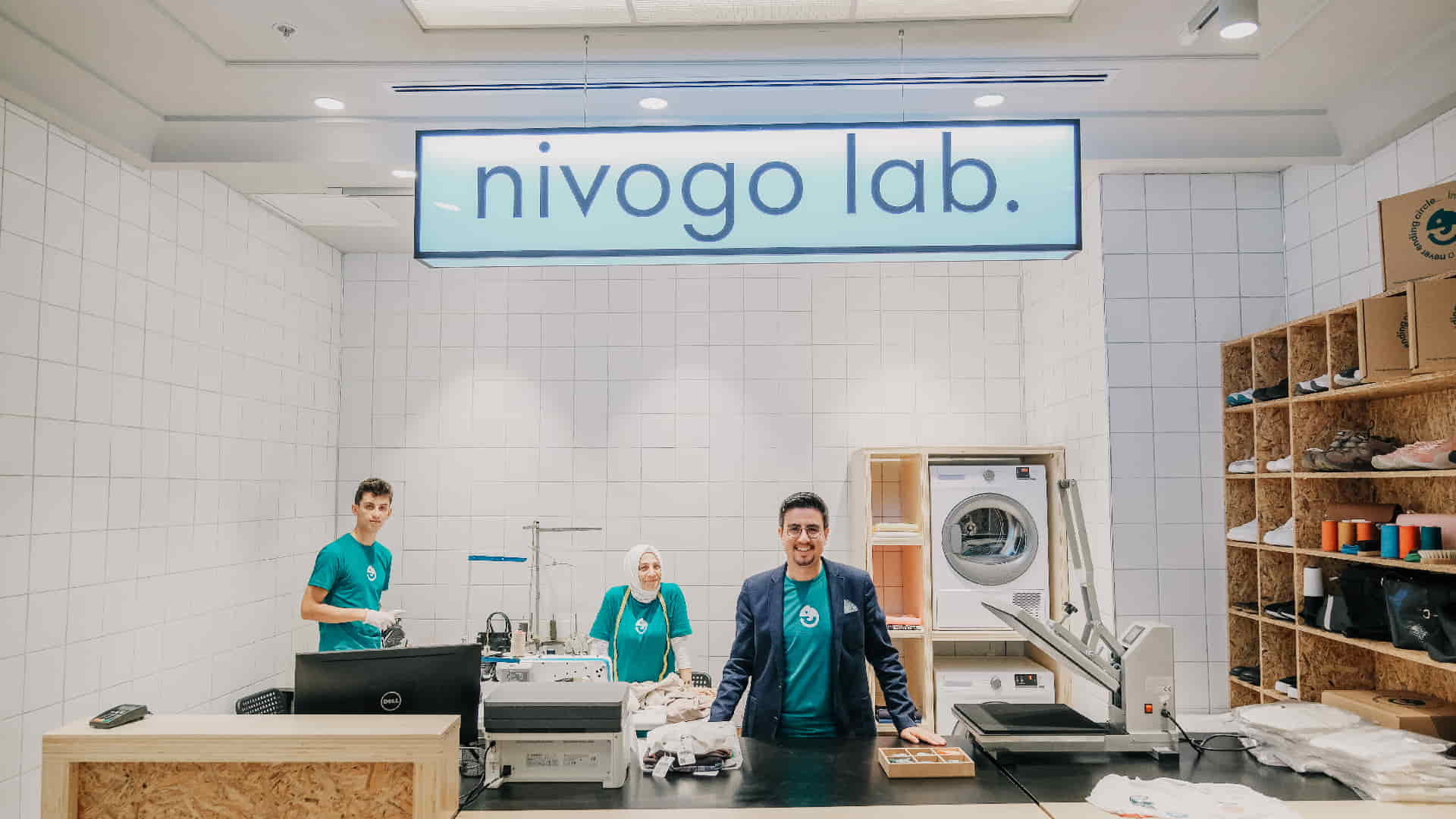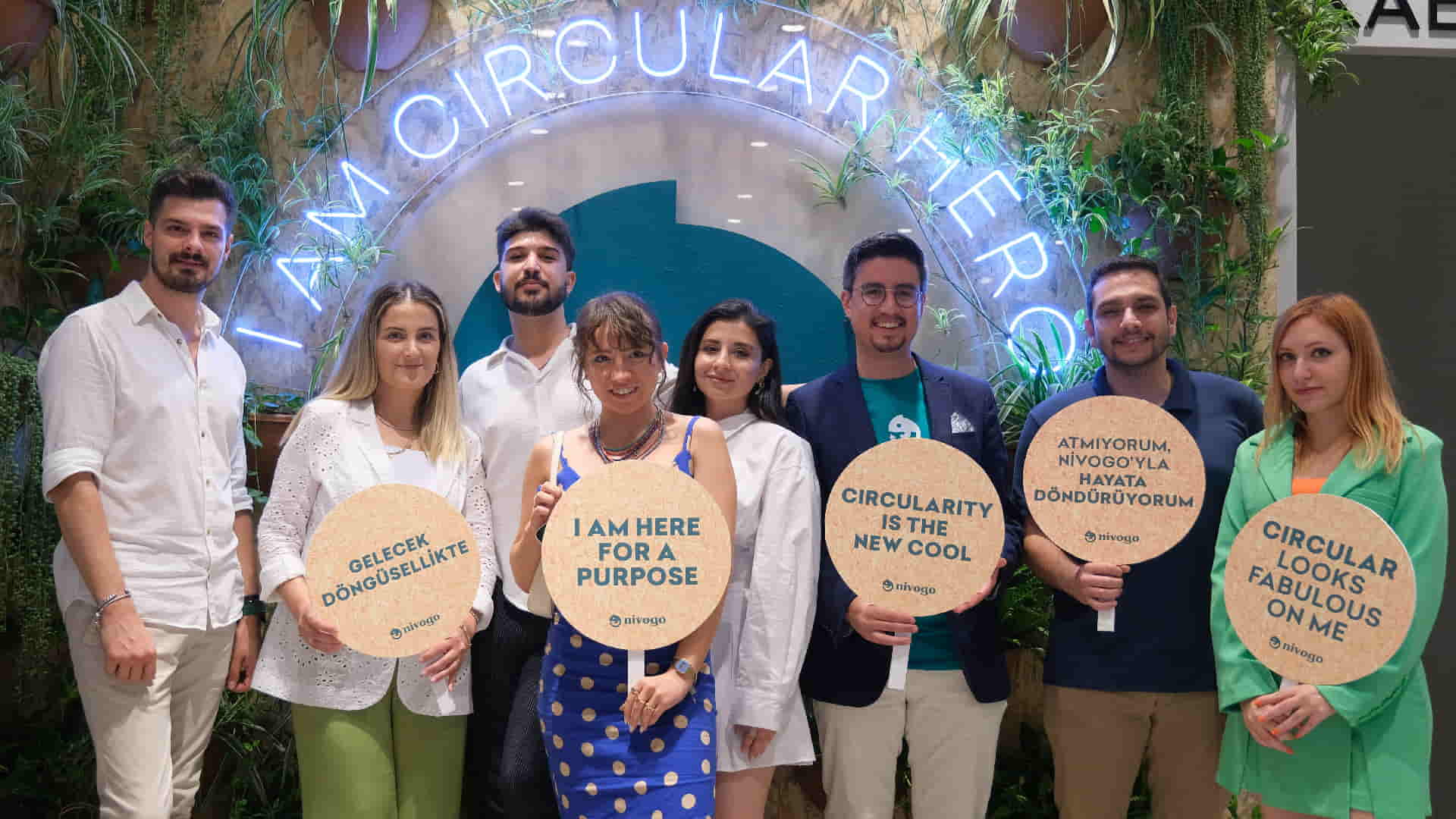Visits: 42
The Nivogo brand, a combination of the words Nivo (new) and go (to take action) is starting the circular transformation movement, representing the ‘new fashion’ in the face of fast fashion that is rapidly consuming the world. The journey of Nivogo started in February 2021 with a team of 3 in a 400 m² apartment in Kağıthane and continues today in Türkiye’s first and largest renewal centre with an area of 5,000 m2 and a monthly renewal capacity of 100,000 products. In addition, the brand, which has recently opened Türkiye’s first circular store to sell its renewed products at Akasya Mall in Istanbul, is expanding its sphere of influence by including individual users in the circular fashion movement. Nivogo Co-Founder Arnas Akbaş told Textilegence the story of the brand from its establishment to the present day and his experiences in this process. He emphasized the importance of circular transformation in order to prevent environmental destruction considering that the production of only 1 t-shirt from scratch uses 2700 litres of water and results in 2.1 kg of carbon emissions.

Nivogo renews products that have not met users in warehouses, bringing them into the circular economy
Arnas Akbaş, explaining the awareness underlying the emergence of Nivogo was based on what he witnessed while working in corporate companies throughout his career, summarizes the beginning as follows:
“I have worked with many different brands in many different parts of the world. The warehouses of companies operating in the fashion industry were mostly full of products that did not meet the users but could be brought back to life, and the companies were uncomfortable with this situation as well. But most companies did not have a system to deal with this. In order to put an end to this situation, which we all directly witnessed to, we started to do research on sustainability and circularity in fashion and to come up with ideas on how we can act on this issue with my friends, and this brought us to where Nivogo is today. The basis of our motivation is to make a more sustainable world possible, as well as to strengthen our circular transformation movement by raising awareness on this issue.”

“We have saved 3 billion litres of water in one and a half years and have prevented thousands of tons of carbon emissions”
Arnas Akbaş states that, at the gestation period, they have built a business model in which brands can circularize their linear business models and they involve users in the circular transformation movement and says that they implemented the renewal centre with their own technological infrastructure and solutions. Akbaş notes that the renewal centre’s volume has increased 36 times since its establishment, renewing more than 300 thousand products that they have processed in the last 12 months, and more than 500 thousand products so far. Emphasizing that they have thus far prevented over 3 billion litres of water wastage and prevented thousands of tons of carbon emissions, he discloses that depending on the increase in the number of products, it is in their plans to open a new renewal centre in the future.
“No product becomes waste at Nivogo”
Arnas Akbaş relays that they pay attention to taking back products with a physical or digital invoice/certificate in order to provide a secure service that ensures all products sold in the store are original. He remarks that they also have a donation program where they renew products without these documents and donate them to those in need, noting that products which cannot be saved by renewing or upcycling are then recycled to their materials to be used in the renewal and modification processes of other products. Saying; “This is why the products that come to the Nivogo renewal centre do not become waste, regardless of their condition, they are brought into the circular economy,” Akbaş explains the processes carried out at the renewal centre as follows:
“An artificial intelligence-based NivoKod we developed, is marked to each of them in order to determine and follow the stations where the processes need to be applied, by examining the status of the products coming to our renewal centre as the first thing. The products marked with NivoKod start their circular transformation journey according to the route optimization determined by our technological infrastructure. At the last stage, with the artificial intelligence-based smart pricing technology we developed, special and fair pricing is made for the renewed products according to the parameters such as the first version, the renewal processes applied, the final version, the quality control score, the year, the season, etc. Thus, we come to complete the circular transformation route of the products.”

“We aim to reach every user from 81 provinces of Türkiye”
Arnas Akbaş emphasizes the fact that fast production and consumption habits are among the factors that make it difficult to establish a circular business model, and states that their determination and belief helped them in this process. He says: “The investments and awards we have received have motivated us to work for a sustainable world and to increase our goals in creating our circular business model. In this process where we are still learning and developing, we aim to set a good example for both the industry and people who are excited about circular transformation and want to take action.”
Akbaş, reminding that they recently opened Türkiye’s first circular store in Akasya, underlines that being able to include individual users in circular transformational movement is their most important motivation for opening physical stores. Akbaş discloses that they aim to expand their sphere of influence and enable every user from 81 provinces of Türkiye to benefit from the circular shopping experience they offer with their online platforms, which are currently in the project phase. He says: “In a situation where an average of 85 billion textile products become waste annually in the world, our aim will be to use our investments to design a world where not even a single product goes to waste.”

